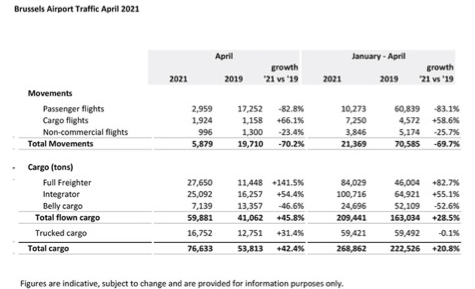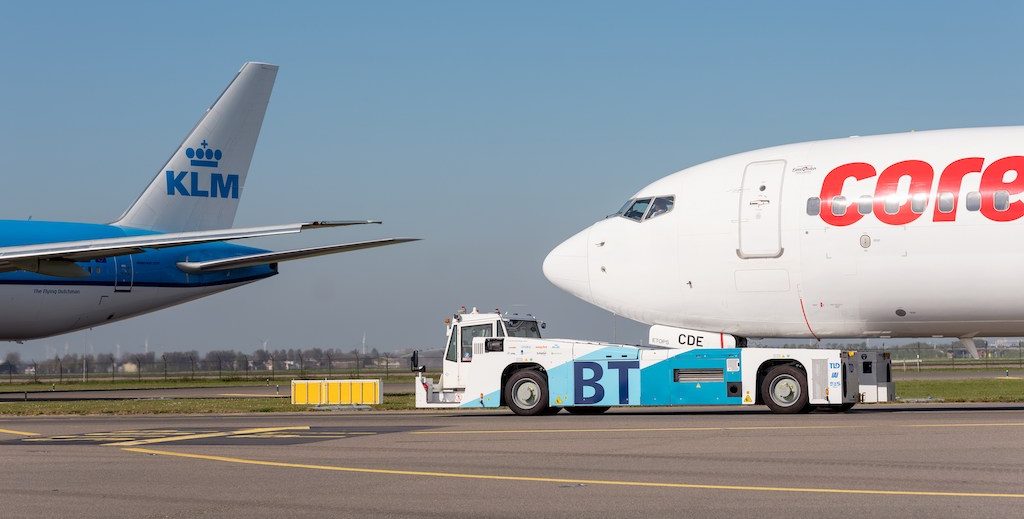Cargo traffic at Brussels airport continued its strong growth in April, with a 72% increase on the same period in 2020.
In the same month only 11% of normal passenger traffic, 250,065 travellers, used Brussels Airport compared with April 2019.
Contrary to the passenger figures, cargo volumes are compared to the 2020 figures as the COVID pandemic has had only a limited impact on cargo volumes in 2020.
The growth of air freight compared to 2020 was seen in all segments: in the integrator segment (+ 55%), the full-freighter segment (+59%) and even in belly cargo, which rebounded from very low volumes in April 2020 (+492%).
In the full-freighter segment, Brussels Airport recorded general growth in the activities of all existing clients. Four new cargo carriers have come to strengthen the logistics platform at Brussels Airport by opening new routes to Asia: Azul, Japan Airlines, SpiceJet and China Central Longhao Airlines.
The activity in the integrator segment structurally remains at a higher level than in previous years thanks to the strong increase in online purchases.
Import and export volumes have increased, especially inbound volumes coming from Asia and North America.
Covid-19 vaccine shipments to and from Brussels Airport continue, with several tens of millions of vaccines handled at Brussels Airport to this day, making Brussels Airport an important hub in the global distribution of Covid-19 vaccines.
The number of full-freighter flights remains well above the level forecast for 2020, with a high number of additional flights operated with passenger aircraft used to carry cargo only. Proportionally, there is no increase in night flights or the use of noisy wide bodies.
Several airlines continue to use these aircraft to provide additional cargo capacity to compensate partially for the loss of belly capacity on normal passenger flights.


